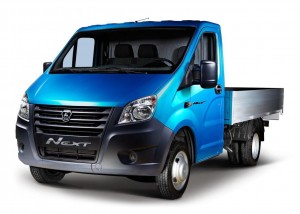In collaboration with the University of Twente (UT), the National Road Transport Department (RDW) and Auto Recycling Netherlands (ARN), the National Aerospace Laboratory (NLR) is developing a lightweight car part for an affordable, Russian commercial vehicle. The composite part is being developed for the automotive institute of a Russian university: this institute (NNSTU) collaborates with the Russian car company, GAZ, which has produced millions of vehicles over the past decades. This new light commercial vehicle is intended for the European market.NLR has a wealth of knowledge and experience in the area of composites, lightweight and recyclable materials. In the aerospace and aviation sector, these materials have long been the subject of research and development. Lightweight, recyclable materials are also increasingly important for the automotive sector. Owing to its comprehensive knowledge development in this field, NLR now also advises the automotive sector.
NLR, which is leading this two-year project, will develop for the NNSTU a lightweight structural component that is capable of supporting heavy loads. NLR is researching the material specifications, mechanical properties, and the effects of exposure to weather. NLR is also focusing on the design, calculations and composite fabrication of this part. Moreover, NLR is developing a virtual analysis model for the demonstration stage of this project, will produce the recyclable prototypes, and also eventually conduct the full scale tests.
The University of Twente’s chair, Product Technology, is involved in this project. The researchers are engaged in developing the models that ensure that the production process of the fibre-reinforced (composite) products is simplified. Consequently, the threshold has been reduced in order to produce the composite materials.
The contributions of all partners are focused on developing new solutions for the composite parts of future LCVs (lightweight commercial vehicles). LVCs are lightweight, yet must be strong, sustainable and adhere to the latest recycling standards. Consequently, the newly developed GAZ vehicle will meet European Union standards.



